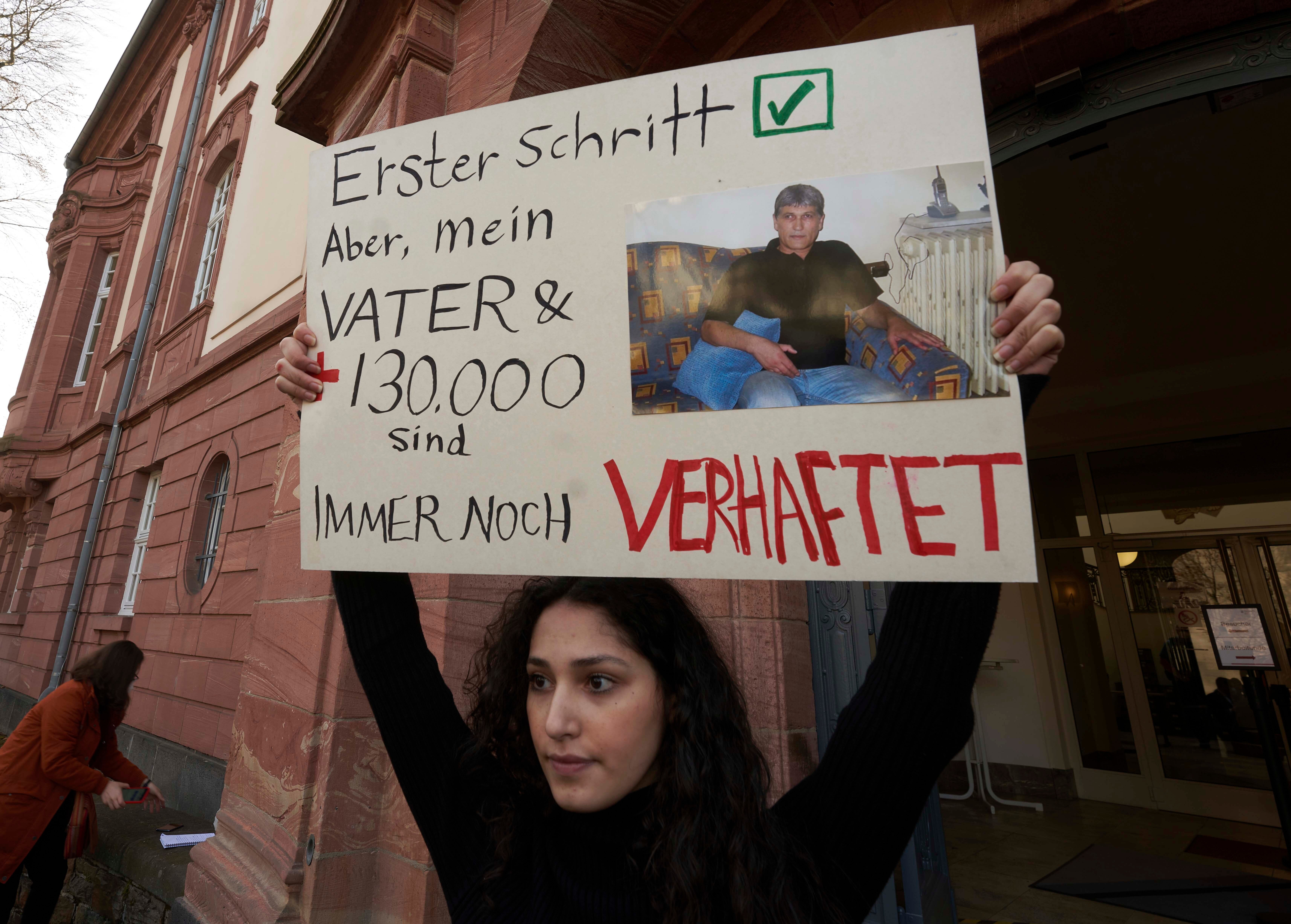For victims, Syria torture trial is 1st step toward justice
Victims of torture in Syria and human rights activists say they hope the upcoming verdict in a landmark trial will be a first step toward justice for countless Syrians who suffered abuse in the country’s long-running conflict

Your support helps us to tell the story
From reproductive rights to climate change to Big Tech, The Independent is on the ground when the story is developing. Whether it's investigating the financials of Elon Musk's pro-Trump PAC or producing our latest documentary, 'The A Word', which shines a light on the American women fighting for reproductive rights, we know how important it is to parse out the facts from the messaging.
At such a critical moment in US history, we need reporters on the ground. Your donation allows us to keep sending journalists to speak to both sides of the story.
The Independent is trusted by Americans across the entire political spectrum. And unlike many other quality news outlets, we choose not to lock Americans out of our reporting and analysis with paywalls. We believe quality journalism should be available to everyone, paid for by those who can afford it.
Your support makes all the difference.Victims of torture in Syria and human rights activists say they hope the upcoming verdict in a landmark trial will be a first step toward justice for countless Syrians who suffered abuse at the hands of President Bashar Assad’s government in the country’s long-running conflict.
A court in the German city of Koblenz is scheduled to deliver its ruling Thursday in the trial of Anwar Raslan, a former Syrian secret police officer who is accused of crimes against humanity for overseeing the abuse of detainees at a jail near Damascus a decade ago.
Speaking this week before the verdict, one of those who testified against Raslan said that whatever the outcome, the court proceedings in Germany would send an important message that those responsible for crimes in Syria can be held to account.
“As Syrians who suffered a lot, especially after the beginning of the revolution, (the trials shows) those sufferings are not in vain," said Wassim Mukdad, a torture survivor and co-plaintiff who — like the defendant — now lives in Germany.
Mukdad was among dozens of witnesses who testified against Raslan and a second defendant, Eyad al-Gharib, who was convicted last year of accessory to crimes against humanity and sentenced by the Koblenz state court to 4½ years in prison.
The court concluded that al-Gharib was part of a unit which detained anti-government protests and took them to a facility in the Syrian city of Douma known as Al Khatib, or Branch 251, where they were tortured.
Federal prosecutors allege that Raslan was the senior officer in charge of the jail and supervised the “systematic and brutal torture” of more than 4,000 prisoners between April 2011 and September 2012, resulting in the deaths of at least 58 people.
The court heard evidence implicating Raslan in 30 of those deaths, said Patrick Kroker, a lawyer with the European Center for Constitutional and Human Rights who represented several survivors at the trial. Instances of sexual violence are also being considered as part of the charge, he said.
If convicted, Raslan could face life in prison. His lawyers last week asked the court to acquit their client, claiming that he never personally tortured anybody and that he defected in late 2012.